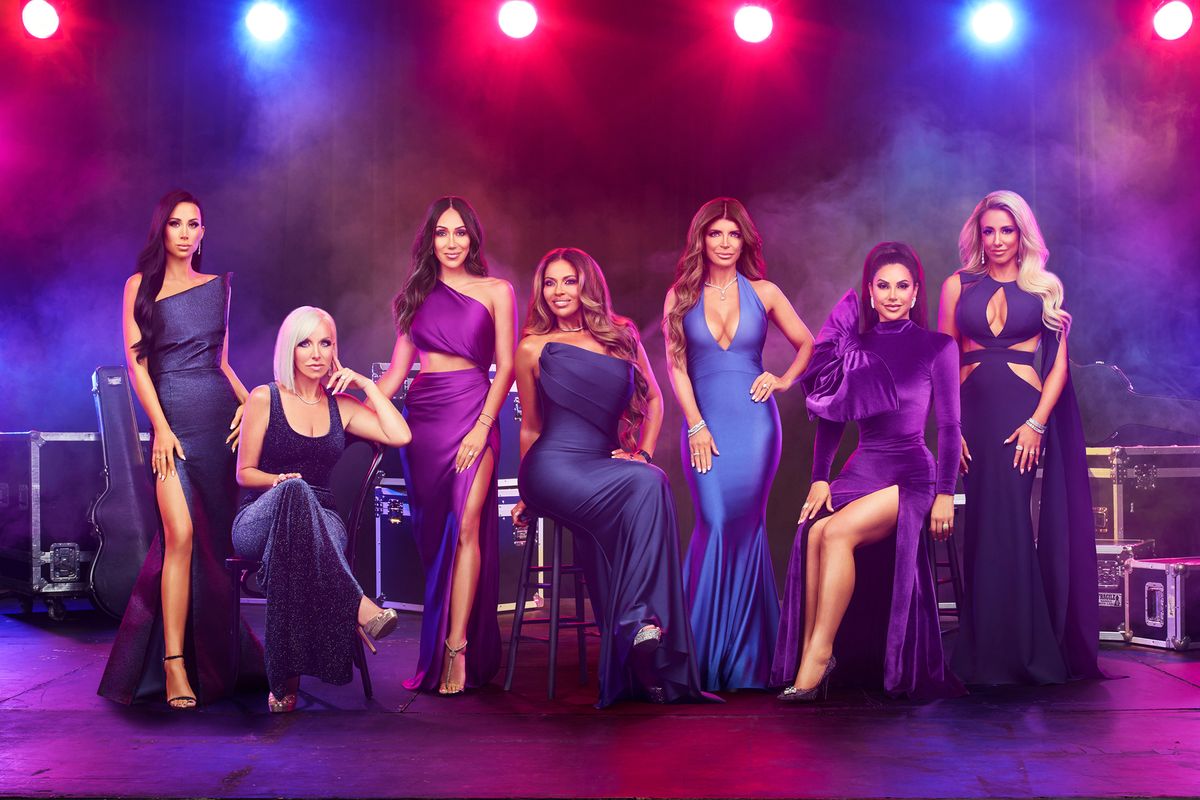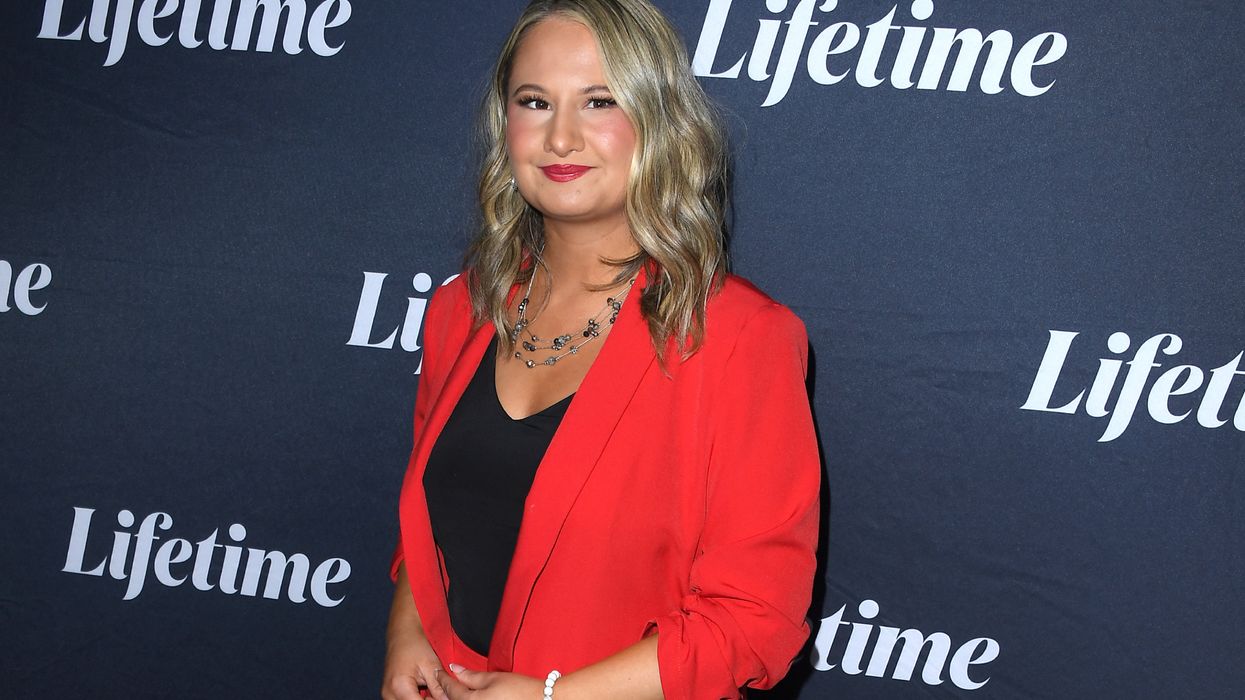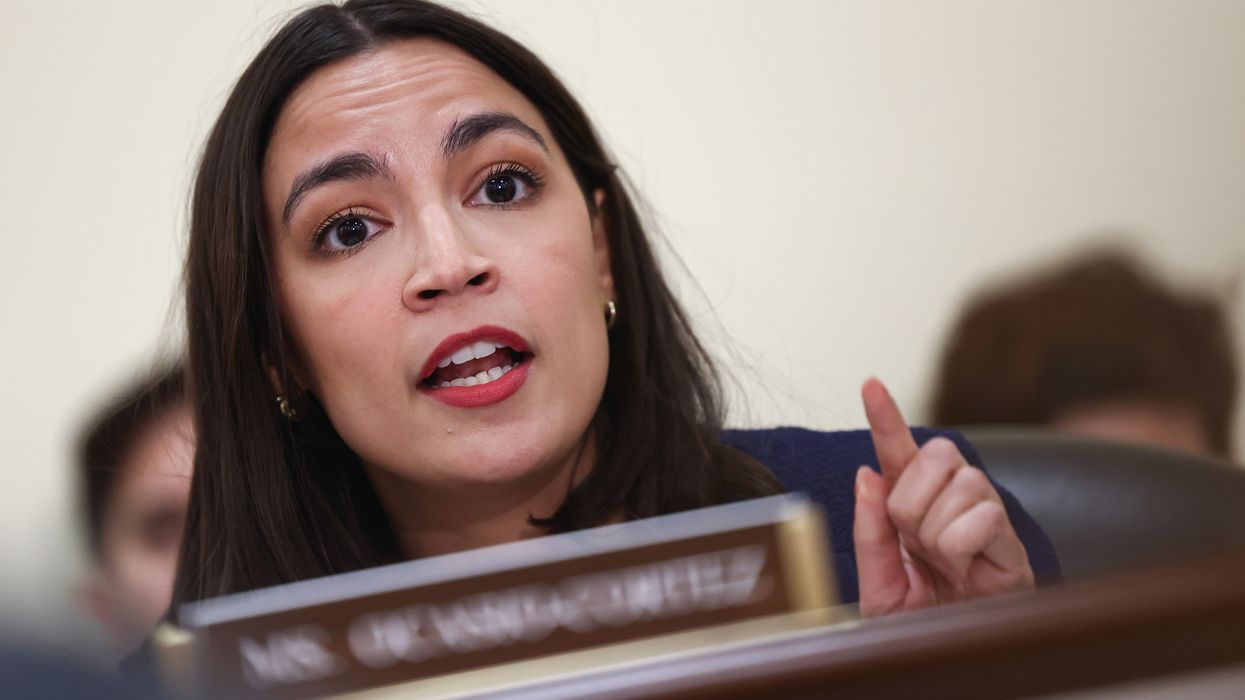It was an almost Biblical spectacle, a modern-day version of The Last Supper: Real Housewives of New Jersey star Dolores Catania sits at an empty table in full-glam, surrounded by broken glasses, half-empty plates, and red wine spilled all over the floor. At Rails Steakhouse — a restaurant that should be granted special protected cultural status alongside The Quiet Woman, The Regency Hotel, and that Amsterdam dinner spot — Margaret Josephs dropped a bombshell. She alleged that it was actually Jackie Goldschneider who had secretly met with the ex of Luis Ruelas, and was responsible for rumors about him circulating in the press. (After a tense exchange, Goldschneider admitted meeting with the ex but denied leaking information to the media. Who to believe?)
The fiery finale party, where zero beef was squashed, was a fitting end to a season of RHONJ that has been dominated by deep-rooted conflicts. The group has mostly been split into two warring factions, spearheaded by Teresa Giudice and Melissa Gorga — sisters-in-law who are now estranged after appearing on the show together since 2011. For only the second time in the history of the Real Housewives franchise, which has been chronicling the fallouts between rich (and wannabe rich) women since 2006, Bravo announced that there would be no reunion for RHONJ this year, reportedly because there was “no path forward” to reconciliation. (Instead, they will air a “watch party” where the two groups will watch the finale and, presumably, drag each other.)
In the Housewives canon, RHONJ has always taken things to the extreme, from Giudice’s infamous table flip in Season One to her 11-month stint in prison for fraud in 2015. RHONJ has also been a show with an emphasis on family, having multiple sets of family members appear on the show over the years — and there are few things more brutal than family feuds. But while a certain level of drama is expected each season, the drama in Season 11 has reached new heights, with some women flat-out refusing to film together, making the season virtually unwatchable at times. The show has become a microcosm of problems facing Bravo right now. On the network’s longest-running reality shows, some disputes have become too dark and unresolvable — or, dare I say it, too real. Sometimes, the “reality” is that some relationships can’t be fixed — and lately, Bravo has been struggling to deal with that in a way that makes good TV.
The Bravo Cinematic Universe has provided some of pop culture’s most iconic fight scenes over the years. I still remember where I was when I watched Real Housewives of New York City’s Aviva Drescher launch her prosthetic leg across a fancy Manhattan cocktail party or when Vanderpump Rules star Jax Taylor finally admitted to Stassi Schroeder that he cheated on her in Las Vegas. From RHOBH’s Dinner Parties from Hell, with vape-puffing medium Allison Dubois, to RHOSLC’s many Sprinter Van altercations, rich women fighting is what Bravo does best.
Most of the network’s reality shows depend on the delicate balance of conflict and resolution. To put it simply, fans tire of watching conflict all the time and want to see the women come back together by the end of the season. Last year, I interviewed Alex Baskin — executive producer of Bravo’s Real Housewives of Beverly Hills, Orange County, and Vanderpump Rules. He emphasized that viewers hope for growth, redemption, and reconciliation — even when people have messed up big-time. RHOC’s Tamra Judge, who equals Giudice for the most seasons as a full-time Housewife, also said that one of the secrets to being a G.O.A.T Housewife is not holding a grudge: “If you don’t have the ability to move on, then you’re on the wrong show.” But what happens when the conflict has gone too far and has reached a point of no return? Bravo is struggling to strike the balance between entertaining drama and deep-rooted resentments across several of its most beloved shows, leaving them at a crossroads of how to move forward.
The format of these shows — where fans follow people from one season to the next, with brief breaks in between — creates the sometimes-unrealistic expectation from fans that all beef should be squashed when one season ends and another begins. (The purpose of the reunions, hosted by Andy Cohen at the end of each season, is to accelerate this process.) But as we’re seeing on RHONJ, that doesn’t always happen. The first time a franchise ran into this difficulty was Season Four of RHONY, back in 2011, which was noticeably darker compared to the first three seasons. The “OG” cast members had become celebrities in their own right, and over several seasons, deeper resentments and rivalries had formed over who was getting attention and who wasn’t. In the end, four of the seven full-time Housewives — Jill Zarin, Kelly Bensimon, Cindy Barshop, and Alex McCord — were let go, and the show was rebooted.
And right now, looking at the entire Housewives franchise, RHONJ isn’t the only show where it feels like something’s gotta give in order for the show to continue. The last season of Real Housewives of Potomac was, even by Cohen’s admission, difficult to watch because of just how much some of the cast clearly disliked each other, with the reunion providing little resolution. The two cast members at the center of it, Robin Dixon and Candiace Dillard-Basset were both let go. And on Real Housewives of Salt Lake City, after newbie Monica Garcia was revealed as a collaborator in Reality Von Tease — an anonymous Instagram account that had been trolling her co-stars for several years — she was also fired when the rest of the cast said they didn’t want to film with her.
Then, looking even wider, there was Season 11 of Vanderpump Rules. The aftermath of #Scandoval — the cheating scandal in which Tom Sandoval conducted a months-long affair with co-star Rachel Leviss, ending his nine-year relationship with his former girlfriend Ariana Madix — was a similarly challenging watch. For the most part, Madix refused to film with Sandoval. In the real world, not wanting to be around your ex all the time would be completely understandable, but in an environment where friendships are being monetized and a show is being made, her decision caused frustration among her castmates and fans.
The problem here is that while most fans know that reality stars are essentially co-workers, they still need to believe that there is an underlying friendship that exists outside of the season. Otherwise, if it gets to the point where that is farcical, it feels like the intelligence of viewers is being insulted by an endless slew of awkward events where the cast is essentially forced to be in a room together to earn their per-episode fee. That’s what RHONJ has felt like for a lot of this season, which culminated in the disastrous steakhouse showdown.
But given the unique circumstances of these relationships, it’s not surprising that they often become strained: Could you be friends with someone if you had to watch all your fights back months later, with fans analyzing your every move on social media, and listen to everything they’d said behind your back in their confessionals, on their podcast, or in the media? It sometimes feels like a rough deal that, in the name of entertainment, these women navigate an environment that makes sustaining friendships so near-impossible, but then they’re punished when they can’t make up on cue. (And if they don’t argue enough? Then you better believe they’ll be branded “boring.”) While these standards might not be fair, the reality is that these norms are baked into the franchise, and they’re not changing anytime soon, which leaves Bravo in a vulnerable place.
At RHONJ’s non-reunion “watch party,” which airs next week, Dolores Catania will move between the two rooms — a testament to the self-described “Switzerland” status that saw her sitting alone at that table, surveying the wreckage, and asking: “How did it come to this?” But when casts split into two camps, as we’ve seen this season, Bravo will eventually have to pick a side if no one else can cross the aisle. Andy Cohen has made no secret of the fact that the show is headed for a reboot. He said it best himself: “When the stars don’t want to be in the same galaxy, that’s not sustainable.”
















